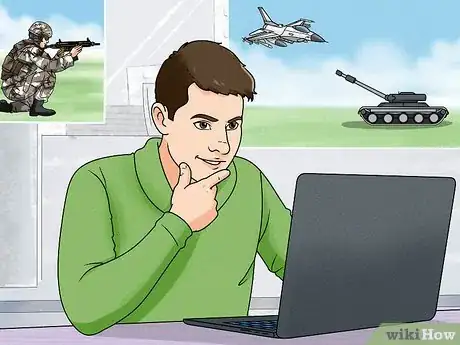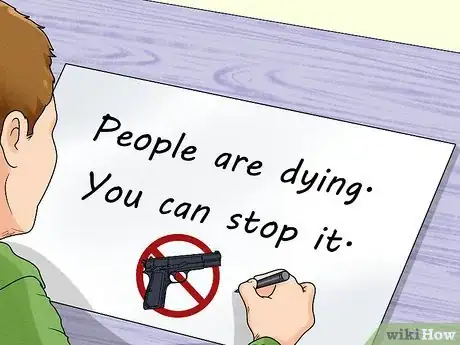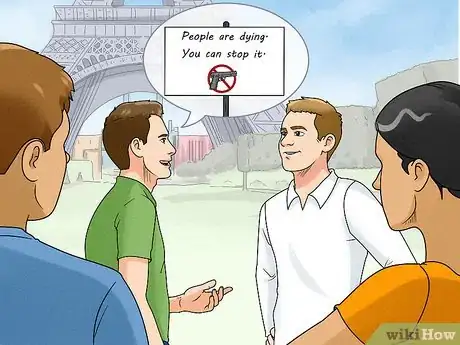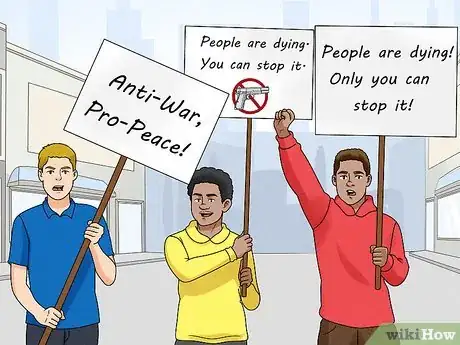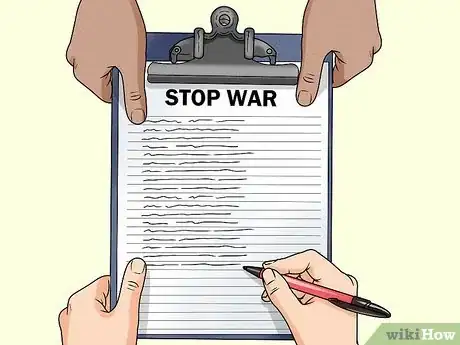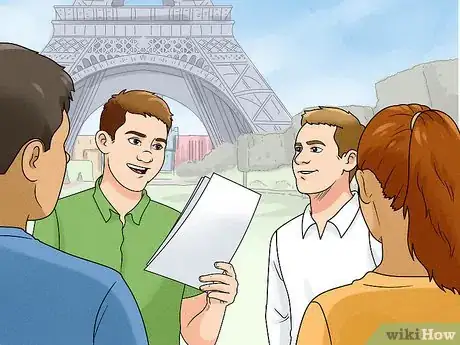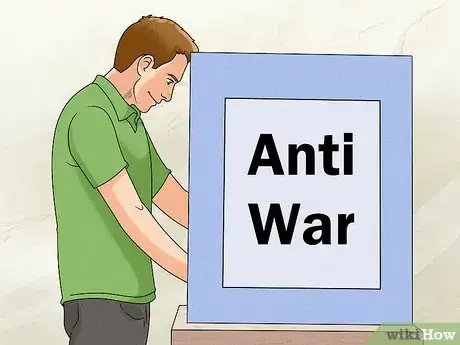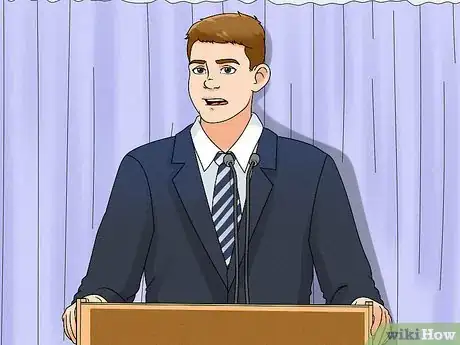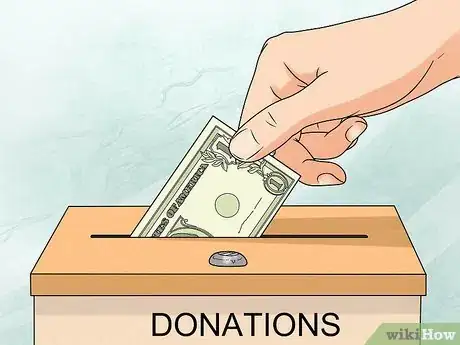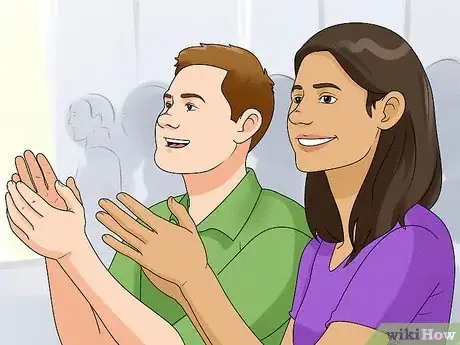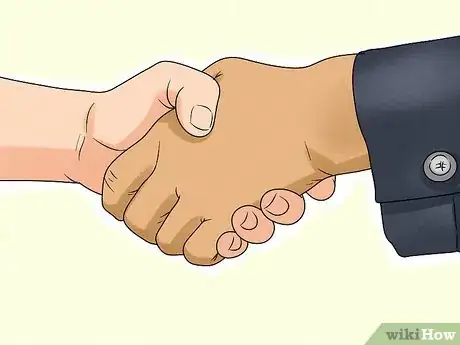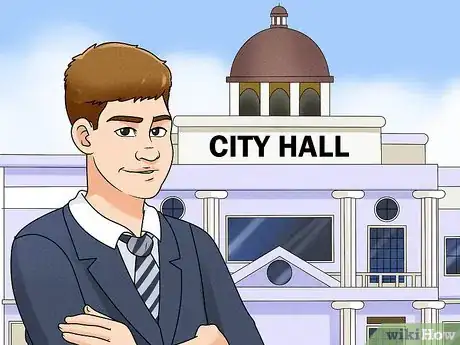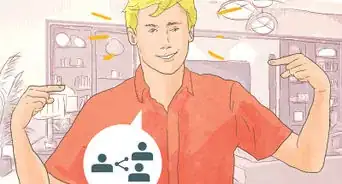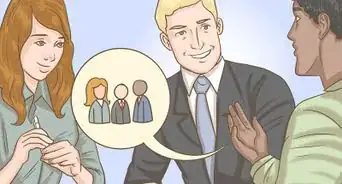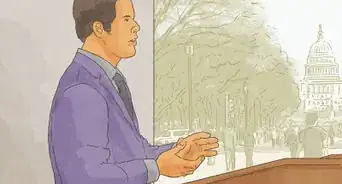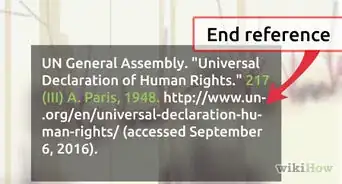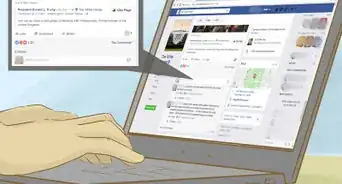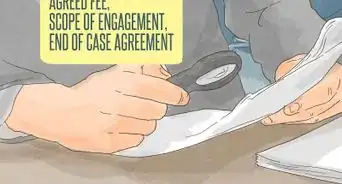This article was co-authored by Asa Don Brown, PhD, DNCCM, FAAETS. Dr. Asa Don Brown is a Clinical Psychologist with over 25 years of experience. He specializes in working with families, children, and couples, treating a variety of psychological disorders, trauma, and abuse. Dr. Brown has specialized in negotiation and profiling. He is also a prolific author having published three books and numerous articles in magazines, journals, and popular publications. Dr. Brown earned a BS in Theology and Religion with a minor in Marketing and an MS in Counseling with a specialization in Marriage and Family from The University of Great Falls. Furthermore, he received a PhD in Psychology with a specialization in Clinical Psychology from Capella University. He is also a candidate for a Masters of Liberal Arts through Harvard University. Dr. Brown is a Fellow of the American Academy of Experts in Traumatic Stress and a Diplomate for the National Center for Crisis Management and continues to serve a number of psychological and scientific boards.
There are 7 references cited in this article, which can be found at the bottom of the page.
This article has been viewed 131,112 times.
"Of course, the people don't want war…But after all, it is the leaders of the country who determine the policy, and it is always a simple matter to drag the people along whether it's a democracy, a fascist dictatorship, a parliament, or a communist dictatorship. Voice or no voice, the people can always be brought to the bidding of the leaders. That is easy. All you have to do is tell them they are being attacked, and denounce the peacemakers for lack of patriotism and exposing the country to greater danger."
-- Hermann Goering at the Nuremberg trials [1] War can be devastating, and it can wreak havoc on entire societies for decades and generations. And sometimes, no good ever comes out of the long years of fighting and staggering national losses. Many people oppose the war but don't know how to take action to stop it. There are a variety of things you can do to take a stand against war.
Steps
Protests
-
1Educate yourself on the issue. If you want to get your voice heard and convince others to join your cause, you need to make sure you fully understand the issue. Read about the war in the news, stay up-to-date on current events around the world, and research the historical backgrounds of the war-torn areas you are concerned about.[2]
-
2Choose a location or event. To make your protest effective and reach the most possible people, you should carefully choose an event or location. The place you choose will greatly impact how people will receive your message. If you interrupt a church service with your protest, people might be more annoyed and less receptive than if you were protesting outside a local government office.
- If you want to join a protest that someone else has organized, there are many ways to find out when these events are happening. Various websites exist as spaces to document upcoming national and international protests.[3] But you should also contact your local chamber of commerce or other local organizations to find out about protests that are happening in your area.
Advertisement -
3Make signs. You can make them as a big banner, or as picket signs to carry around. No matter how it looks, just make sure it gets the point across. Don't paint the words in yellow, because people won't be able to see this while driving past. Paint it in a dark color, such as black or red. Paint something meaningful on it that will cause people to want to sign your petition, such as, "People are dying. You can stop it." This will make people feel guilty for not doing anything, and they will proudly sign the petition to help the cause.
- Don't write something like, "End war or we'll hurt you," because this is against what your belief is stating.
-
4Gather followers. The sad truth is that if no one believes in what you're doing, no one is going to help you. The easiest thing to do is to get most of your friends to join you and then start looking for other like-minded people. Ask your friends to invite other people they know. Post about it on social media and ask your friends to share your post.
- If you are staging a protest, the more people you have participating, the more effective it will be.
-
5Protest. Go to a place that is crowded, such as the park on a nice day. Set yourself up at a nice table along with some others who support the cause, and say things loudly like, "People are dying! Only you can stop it!" or "Anti-War, Pro-Peace!" These things are likely to catch others' attention. If someone comes over, tell them about your beliefs and ask them to sign your petition.
- In general, you don’t need a permit to protest in public areas like parks, sidewalks, or streets. If you protest on private property, you need the permission of the property owner. Sometimes permits are required for protests if they occur on federal property or require assistance from the city (like blocking off streets).
Political Avenues
-
1Create a petition. Open a word document, make a page with the headline "STOP WAR" and include some explanations as to what you believe in. Then insert numbers with lines long enough for names. Print out a lot of lines because many people will need to sign them.
- You can also create an online anti-war petition that people can sign electronically.
- If your goal is to enact change in the government, consider submitting your petition to the White House. Officials at the White House will review your petition if you acquire 100,000 signatures within 30 days.
-
2Share your petition with others. Making a petition is meaningless unless you get other people to sign it. Start with your friends and family, asking for their support and signatures. After that, you can start asking strangers to sign. Post about it on social media websites, walk around crowded areas and approach people about your petition (college campuses are particularly good for this). The more signatures you have, the more credibility your cause will have.
-
3Vote for the anti-war candidate. Take action by voting for the anti-war candidate, and encourage others to do so also. You can encourage your friends to vote for the anti-war runner, but this isn't a good idea for strangers, because they won't appreciate you telling them what to do.
- If it is not an election year in your area, try getting involved in other ways. Support the anti-war candidate (or another elected official) by donating money or volunteering your time. This is a great way to support a cause you believe in.
- Asking people to sign a petition is okay, but telling them who to vote for and informing them of the candidate will seem more like a campaign. Try to remain personal when asking people to help the cause, and stick to the little things they can do.
-
4Educate your community about your cause. If you are serious about ending the war, you need to help others believe in this too. You can host anti-war community forums in your area to discuss the issues and educate others. You can create and pass out flyers that discuss your beliefs. You can promote events in your area that support your cause. You can advertise in your local newspaper.[4]
-
5Financially support others who are working to end the war. Donate to campaigns, volunteer your time, or assist in another way. These contributions will help efforts to end the war.[5]
- Some good examples of anti-war organizations that you can donate your money to or volunteer with include the National Youth and Student Peace Coalition and the Stop the War Coalition[6]
- You can also raise money for third-world countries, specifically for those affected by war. Host a benefit, organize a raffle or auction, and donate your possessions. All of these things will help those suffering from the devastating aftermath of war.[7]
Movements
-
1Find like-minded people. To start an anti-war movement in your area, you’ll need to recruit other people who believe the same thing as you do. Start by asking your friends, then widen your search. Pass out fliers on college campuses. Research and contact other pacifist groups in your area, including religious organizations. Use social media to your advantage. You can create a group on a social media website and recruit members that way, though they might not all be located in your area.
- Try to take note of local politicians that are against the war in question to enlist their help in your movement.
-
2Create a foundation for your group. All groups have to be based on some ideology or belief. Your anti-war group needs to outline and establish a set of beliefs and goals that all of the members can agree on. These will be the guidelines for membership in the future.
-
3Make connections in the community. If you want to make a difference, you’ll need to start connecting with your community and getting other citizens involved. Your presence in the community must be visible so that others will see you, know what you are doing, and potentially gain interest in your project.
- Sponsor an anti-war night at a local restaurant where a portion of the proceeds goes toward helping end war. Host a community event that raises money for your cause. Build relationships with local businesses that will help you and allow you to use their business as an avenue for community involvement.
-
4Participate in a non-violent demonstration. Demonstrations can be a very effective form of political activism because it shows the public how strongly your beliefs are in the context of an everyday setting. Whether you decide to do a sit-in at a local restaurant or chain yourself to the doors of City Hall, your actions will show a lot of people the intensity of your beliefs and perhaps will even inspire them to look into the war more thoroughly.
Expert Q&A
-
QuestionWhat can be done to stop wars?
 Asa Don Brown, PhD, DNCCM, FAAETSDr. Asa Don Brown is a Clinical Psychologist with over 25 years of experience. He specializes in working with families, children, and couples, treating a variety of psychological disorders, trauma, and abuse. Dr. Brown has specialized in negotiation and profiling. He is also a prolific author having published three books and numerous articles in magazines, journals, and popular publications. Dr. Brown earned a BS in Theology and Religion with a minor in Marketing and an MS in Counseling with a specialization in Marriage and Family from The University of Great Falls. Furthermore, he received a PhD in Psychology with a specialization in Clinical Psychology from Capella University. He is also a candidate for a Masters of Liberal Arts through Harvard University. Dr. Brown is a Fellow of the American Academy of Experts in Traumatic Stress and a Diplomate for the National Center for Crisis Management and continues to serve a number of psychological and scientific boards.
Asa Don Brown, PhD, DNCCM, FAAETSDr. Asa Don Brown is a Clinical Psychologist with over 25 years of experience. He specializes in working with families, children, and couples, treating a variety of psychological disorders, trauma, and abuse. Dr. Brown has specialized in negotiation and profiling. He is also a prolific author having published three books and numerous articles in magazines, journals, and popular publications. Dr. Brown earned a BS in Theology and Religion with a minor in Marketing and an MS in Counseling with a specialization in Marriage and Family from The University of Great Falls. Furthermore, he received a PhD in Psychology with a specialization in Clinical Psychology from Capella University. He is also a candidate for a Masters of Liberal Arts through Harvard University. Dr. Brown is a Fellow of the American Academy of Experts in Traumatic Stress and a Diplomate for the National Center for Crisis Management and continues to serve a number of psychological and scientific boards.
Clinical Psychologist Ending a war in its tracks is not always a possibility, especially for civilians. Countries often enter wars for altruistic purposes, and it is important to recognize that war and those who are advocating on behalf of it may be acting in the best interest of others. Unfortunately, wars are not always avoidable or foreseeable. Therefore, while humanitarian objectives are to end wars and rumors of wars, sometimes we may be faced with the difficult nature of war. Just like a corporation, there are always healthier solutions, healthier ways to communicate and win-win options. Let’s influence our legislatures to advocate the same.
Ending a war in its tracks is not always a possibility, especially for civilians. Countries often enter wars for altruistic purposes, and it is important to recognize that war and those who are advocating on behalf of it may be acting in the best interest of others. Unfortunately, wars are not always avoidable or foreseeable. Therefore, while humanitarian objectives are to end wars and rumors of wars, sometimes we may be faced with the difficult nature of war. Just like a corporation, there are always healthier solutions, healthier ways to communicate and win-win options. Let’s influence our legislatures to advocate the same. -
QuestionWill war start between the USA and North Korea?
 DonaganTop AnswererIt's hard to say. It depends on how skilled the countries' leaders are at diplomacy.
DonaganTop AnswererIt's hard to say. It depends on how skilled the countries' leaders are at diplomacy. -
QuestionIs the closing of arms factories the only way to prevent wars?
 Community AnswerNo, there are already enough weapons in existence to engage in a full-fledged war severe enough to destroy most civilized parts of the planet.
Community AnswerNo, there are already enough weapons in existence to engage in a full-fledged war severe enough to destroy most civilized parts of the planet.
Warnings
- Some nations consider this material seditious and will arrest or jail protesters.⧼thumbs_response⧽
- Some people just don't want to sign a petition or receive a pamphlet. Don't force it on them, because this will destroy any chances of them listening to you in the future.⧼thumbs_response⧽
- You can support your fellow soldier while being against war at the same time. The military plays a vital role in one’s country and our global community.⧼thumbs_response⧽
Expert Interview
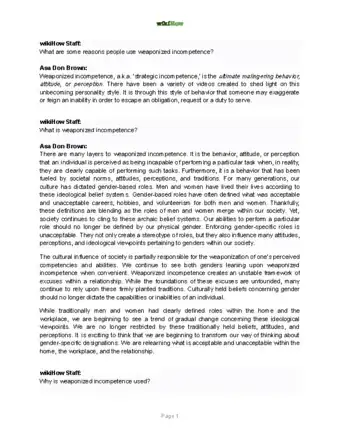
Thanks for reading our article! If you'd like to learn more about taking action against war, check out our in-depth interview with Asa Don Brown, PhD, DNCCM, FAAETS.
References
- ↑ https://www.scientificamerican.com/article/the-nazi-and-the-psychiatrist/
- ↑ https://www.coe.int/en/web/compass/war-and-terrorism
- ↑ https://unesdoc.unesco.org/ark:/48223/pf0000374206
- ↑ https://cft.vanderbilt.edu/guides-sub-pages/teaching-through-community-engagement/
- ↑ https://kidshealth.org/en/parents/volunteer.html
- ↑ https://www.nyspc.net/
- ↑ https://www.canada.ca/en/revenue-agency/services/charities-giving/charities/operating-a-registered-charity/issuing-receipts/fundraising-events-issuing-receipts.html
